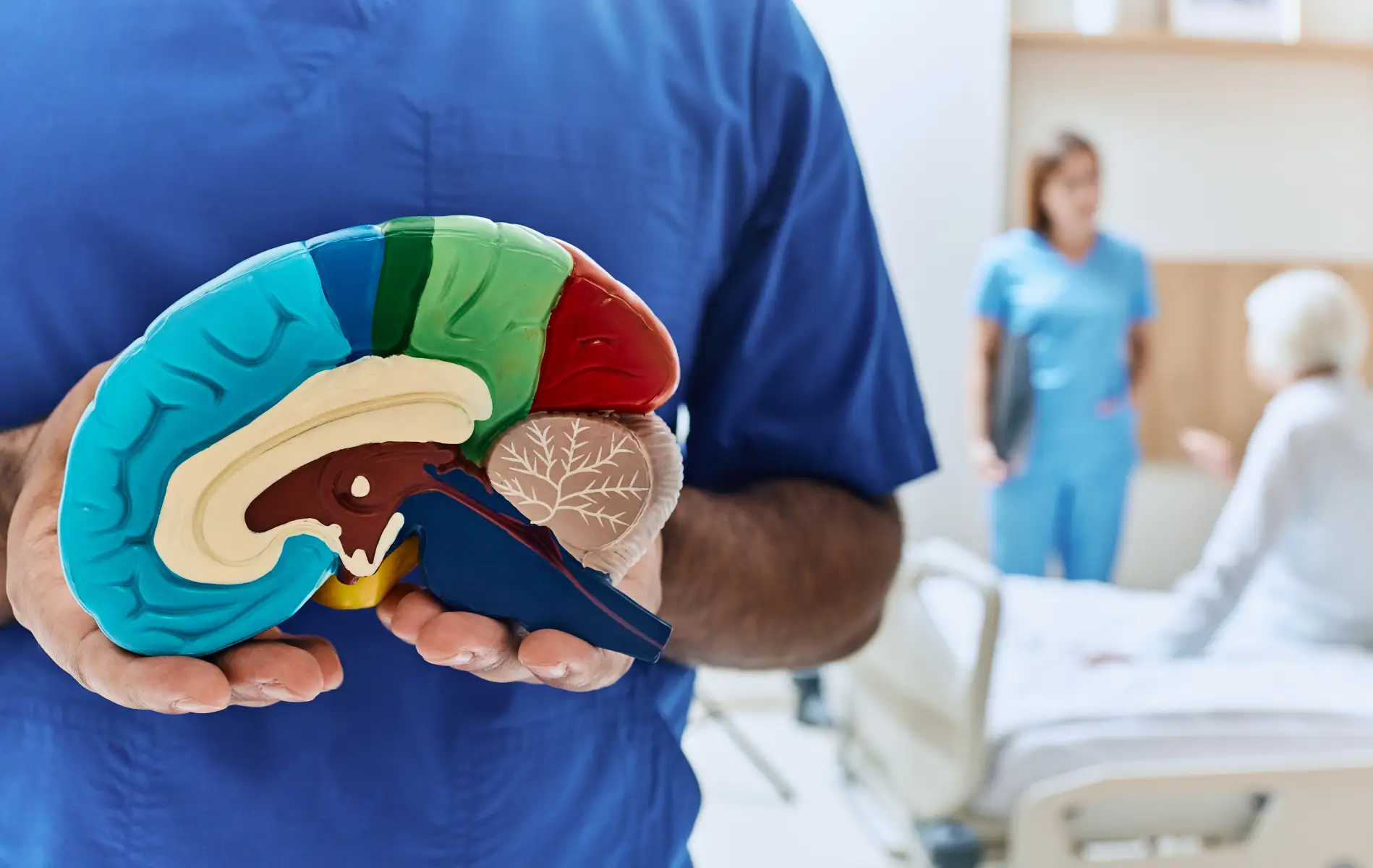Trauma influences both the brain and body in complex and significant ways. While emotional and psychological symptoms are commonly associated with trauma, fewer people are aware of the physiological changes that take place beneath the surface. Advances in neuroscience have helped us understand that trauma’s effects are not limited to memory or mood—they also involve the brain’s structure, hormonal responses, and even immune function.
This article explores the science behind trauma, including the brain’s stress responses, its long-term effects on physical health, and how these insights can inform recovery.
Recognising the Signs of Unresolved Trauma
Trauma, whether experienced in childhood or adulthood, often leaves silent, long-lasting effects. When trauma goes unresolved, it can manifest in daily life in ways that are not always obvious. These effects are not just emotional—they can influence thoughts, behaviours, physical health, and relationships. Left unaddressed, unresolved trauma can hinder an individual’s ability to function, thrive, and feel content.
This article sheds light on the common signs of unresolved trauma and provides guidance on how to recognise them—both in yourself and in others. Understanding these signs is the first step towards healing and regaining control over your life.
What Is Unresolved Trauma?
Unresolved trauma refers to emotional and psychological wounds that remain unhealed after a distressing experience. When trauma is not fully processed, it stays “stuck,” continuing to affect a person’s mental and physical health in the long term.
Trauma does not necessarily fade over time. In fact, ignoring it or attempting to suppress feelings often leads to the development of coping mechanisms that might be harmful or maladaptive. These unresolved effects can surface in various ways.
Common Emotional Signs of Unresolved Trauma
Unresolved trauma often manifests in difficult-to-manage emotions or changes in mood. The following emotional symptoms may indicate that an individual is struggling with trauma:
1. Anxiety and Chronic Fear
Unresolved trauma places the brain in a heightened state of alertness, creating constant feelings of danger or unease. Individuals may experience overwhelming worry or fear, even when no apparent threat is present.
2. Emotional Numbness
For many, a common reaction to trauma is to “shut down” emotionally. This can lead to feelings of detachment, apathy, or a lack of enjoyment in previously cherished activities.
3. Mood Swings
Unprocessed emotions can surface unpredictably, leading to sudden shifts in mood or intense reactions to everyday situations. Feelings of anger, sadness, or frustration may arise without an apparent cause.
4. Guilt and Shame
Some trauma survivors blame themselves for what happened, even when the trauma was entirely out of their control. This deep-rooted shame can erode self-esteem and result in self-critical thoughts.
Physical Symptoms of Unresolved Trauma
Since the brain and body are interconnected, unresolved trauma often manifests through physical symptoms. These may include:
1. Chronic Pain or Tension
Muscular tension, particularly in the shoulders, neck, and jaw, is a common sign of unresolved trauma. Chronic pain, such as headaches or stomach problems, may also develop without a clear physical cause.
2. Fatigue or Exhaustion
Constant emotional stress can take a significant toll on the body, leading to physical fatigue and low energy levels. Survivors often report difficulties maintaining motivation and focus.
3. Sleep Disturbances
Many trauma survivors struggle with insomnia, nightmares, or disrupted sleep patterns. These disturbances may stem from hypervigilance, unresolved fear, or intrusive memories.
4. Weakened Immune System
Trauma can suppress immune function, resulting in frequent illnesses or delayed recovery. This is often linked to prolonged stress and hormonal imbalances.
Behavioural Signs of Unresolved Trauma
Without recognising or addressing it, unresolved trauma can influence behaviour in destructive or limiting ways. Common behavioural signs include:
1. Avoidance
Trauma survivors may avoid specific places, people, or activities that remind them of their distressing experience. This behaviour prevents them from fully engaging in life and maintaining normal routines.
2. Addictive or Compulsive Behaviours
Unprocessed emotions often drive individuals to seek relief through unhealthy coping mechanisms, such as substance abuse, overeating, gambling, or spending excessive time on technology.
3. Difficulty Maintaining Relationships
Trauma survivors may withdraw from others due to trust issues, fear of intimacy, or difficulty expressing emotions. Conversely, some might feel overly dependent on another person for validation or safety.
4. Frequent Anger or Irritability
Unresolved trauma can lead to an internal build-up of frustration, which might spill out as recurrent anger outbursts or irritability, even in trivial situations.
How Trauma Affects Relationships
Trauma does not simply affect an individual—it also impacts their relationships with others. Common relational difficulties include:
- Trust Issues: Survivors may struggle to trust others, fearing betrayal, manipulation, or harm.
- Fear of Rejection: Fear of being abandoned or let down may cause survivors to push others away.
- Emotional Overdependence: Some survivors become overly reliant on close relationships, fearing that they cannot cope alone.
- Conflict in Intimacy: Trauma can make it difficult for survivors to establish emotional or physical intimacy, often due to unresolved feelings of vulnerability.
Recognising Unresolved Trauma in Children
When unresolved trauma occurs in childhood, its effects can be profound and often persist into adulthood. Common behavioural signs in children include:
- Acting out in school or at home.
- Difficulty concentrating or learning.
- Frequent nightmares or bedwetting.
- Sudden changes in eating or sleeping habits.
- Emotional outbursts or clinginess with caregivers.
Children often lack the language to articulate their trauma, so these behaviours may be their way of expressing internal distress. Early intervention is crucial to helping children process and heal from trauma.
When to Seek Help
Recognising the signs of unresolved trauma is the first step, but healing often requires support. Professional help should be sought if:
- Symptoms interfere significantly with daily life, work, or relationships.
- Maladaptive coping behaviours (e.g., substance use, self-harm) are present.
- Distress persists for more than a few months after the trauma.
- Flashbacks, avoidance, or hyperarousal symptoms are severe.
By seeking help, individuals can explore therapeutic approaches that address unresolved trauma at its core.
Effective Treatment for Unresolved Trauma
The good news is that trauma can be processed and resolved with the right interventions. Some common evidence-based therapies include:
- Cognitive Behavioural Therapy (CBT): Helps individuals identify and reframe negative thought patterns linked to their trauma.
- Eye Movement Desensitisation and Reprocessing (EMDR): A structured therapy designed to help the brain process distressing memories and reduce emotional disturbances.
- Somatic Therapy: Addresses trauma stored in the body through techniques such as body awareness, movement, or breathing exercises.
- Trauma-Focused Group Therapy: Creates a supportive space for survivors to share their experiences and connect with others who understand.
Self-care practices, such as mindfulness, exercise, and journaling, also play vital roles in supporting recovery.
Final Thoughts
Unresolved trauma can affect any aspect of life, but recognising its signs is the first step toward healing. While it is natural to feel burdened by its weight, trauma does not have to define you. With professional support, patience, and self-compassion, recovery is possible. Trauma often thrives in silence, but addressing it openly and courageously paves the way for healing. By seeking help, nurturing healthy habits, and rebuilding self-trust, you can transform distress into resilience, creating a future defined not by pain, but by growth and strength.










